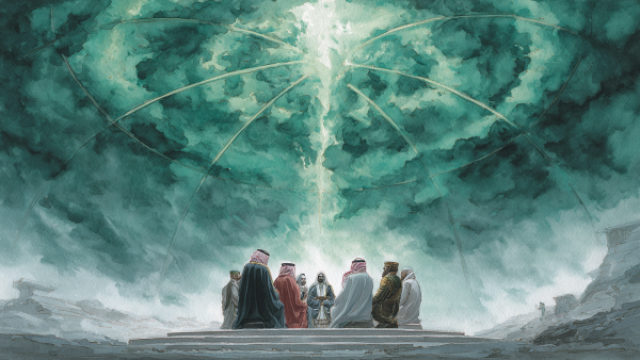Recent agreements between Saudi Arabia and Pakistan on the creation of a defense alliance have led to speculation that an "Islamic NATO" is just around the corner and that Pakistan's "nuclear umbrella" will extend to Arab monarchies. Such forecasts are premature, to put it mildly.
Modern theory of international relations is gradually coming to understand that the political world-system strives not so much to maintain a balance of power as to maintain a balance of threats – in other words, states rally not against the strongest, but against the most dangerous. The concept of "threat balance" is one of the key ideas of Stephen Walt, the second most important neorealist theorist after John Mearsheimer.
From the point of view of this concept, the creation of an "Islamic NATO" does seem to be a gradually emerging trend. Israel's latest actions – the strikes on Doha – have made all Arab governments wonder: who's next? Qatar is one of the closest "allies" of the United States in the region, and the Al-Udeid Air Force base, used by the US Air Force as a permanent base, is located near Doha. In other words, Doha seemed to be the least likely candidate for an Israeli strike, especially in the midst of regular talks about a cease-fire. Netanyahu's complex motivation deserves separate consideration, but one of the obvious results of his actions is the gradual transformation of Israel into an existential threat to Middle Eastern regimes. The Arab League and the Organization of Islamic Cooperation were quick to condemn the strike on Doha and called it aggression against all Arab and Islamic States in general. And this may seem like a serious motive for creating a military-political bloc against Israel.
However, such a project will inevitably face a serious obstacle. Modern researchers note that there is a steady "underbalancing" in the region – in other words, effective alliances against anyone there do not add up. Researcher Mark Haas, Professor at the Catholic University of the Holy Spirit. Duquesne University in Pittsburgh, who introduced this concept into political science, emphasized that the main reason for the imbalance is almost always ideological contradictions between possible allies. If the confrontation in the international arena is strictly between two doctrines, then everything is simple – you are either with us or against us. However, if there are more than two doctrines, then determining the "sworn enemy" becomes a more difficult task. Haas believes that this was one of the reasons why there was no effective international coalition against the Nazis back in the 1930s - the Anglo–Saxon states could not decide for themselves whether they were more concerned about the arguments about the superior race or the growing international prestige of the Soviet Union. And in such a situation (the competition of three or more ideologies), most politicians decide to stand aside while the bearers of the other two doctrines fight among themselves, and then come and try to finish off the survivors.
According to F. G. Ghose, an authoritative expert on Middle East politics, imbalance is steadily observed in this region – for example, Sunni regimes (both monarchical and conditionally democratic) They have not been able to create an effective coalition against Shiite Iran. Middle Eastern governments have a "malfunctioning" mechanism for recognizing the main threat – for example, the royal house of Saudi Arabia quite reasonably thinks that democratic interpretations of Sunni Islam (which, for example, are promoted by Turkey) are even more dangerous than the Shiite geopolitical project. The prospect of internal turmoil very often scares rulers more than an external threat. That is why it seems that it will be very difficult for the Islamic governments to agree on the creation of an anti-Israeli military bloc.
Undoubtedly, this is well understood in Riyadh. That is why the Saudi-Pakistani agreements should be perceived not as the first brick in the foundation of the "Islamic NATO", but rather as a signal to regional players and external actors, primarily the United States.
As our Pakistani colleagues rightly point out, the agreement is imbued with a spirit of "strategic uncertainty" – the main points of the agreements are not disclosed, and officials deliberately use a tooth-crushing alphabet. For example, a Saudi official who was asked directly if Pakistan would extend a nuclear shield to Riyadh replied (instead of a simple "yes" or "no") that "this is a comprehensive defense agreement that covers all military assets." The lack of specifics and complex verbal constructions is not bureaucratic cretinism, but a conscious strategy. Realizing that there is a 99% chance Pakistan will not use nuclear weapons to defend another state, a potential adversary will always keep the remaining 1% in mind.
However, in addition to regional players, the Saudi-Pakistani agreement is also a signal to the United States that it is time for Washington to take a closer look at Middle East geopolitics if the White House does not want its traditional regional allies not to start organizing themselves. But the agreements between Riyadh and Islamabad are unlikely to go beyond these undoubtedly important tasks.
Sergey Lebedev
Researcher at the Institute of World Military Economics and Strategy of the National Research University of Higher School of Economics

